I threaded 888 warp ends. I am getting ready to thread those 888 ends again. It’s part of the preliminary process for a new drawloom project. A drawloom has two sets of heddles. Thread the pattern heddles. Then, thread the ground heddles. I enjoy all the preliminaries because of what they bring about—a delightful new weaving adventure!
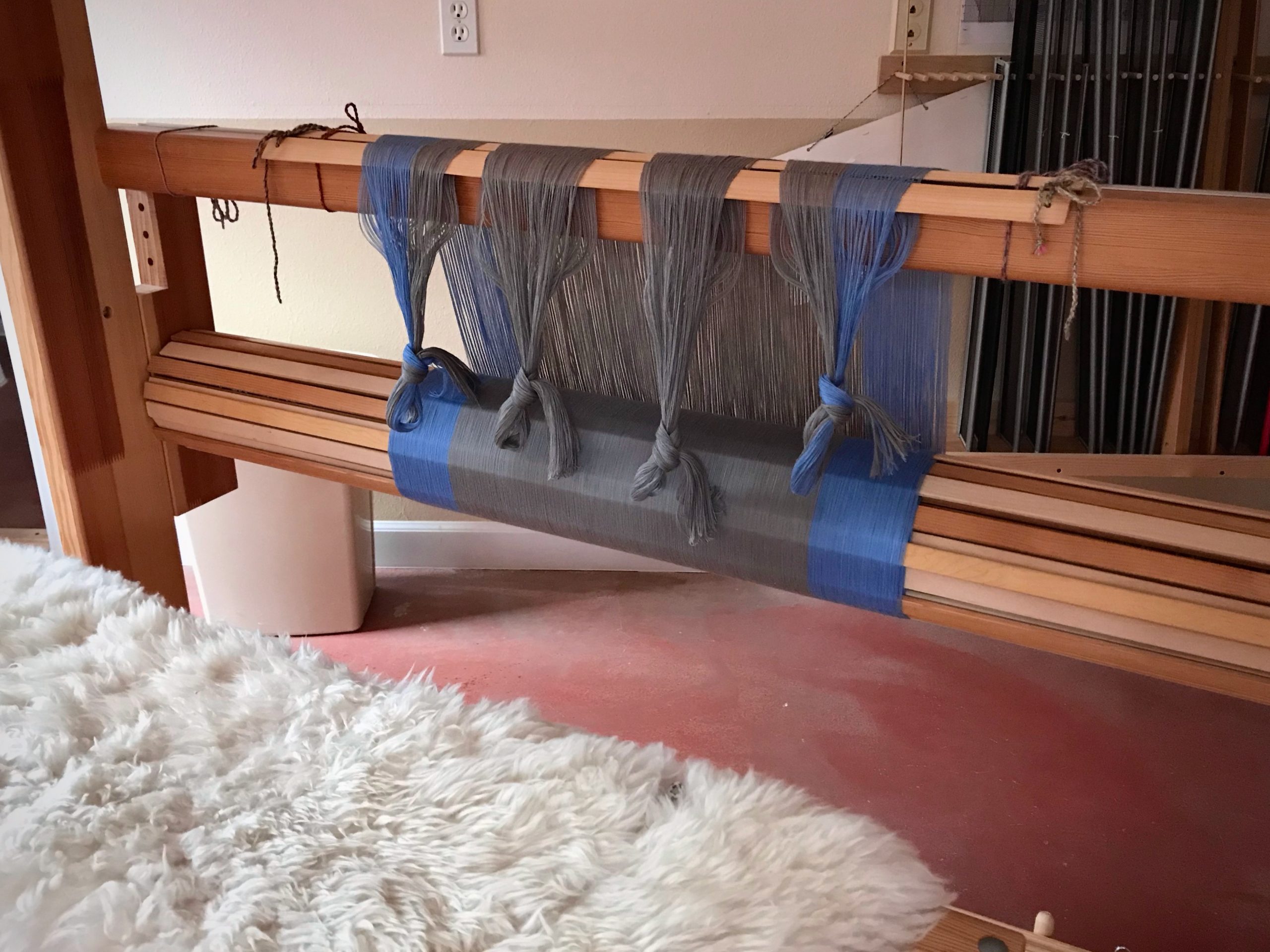
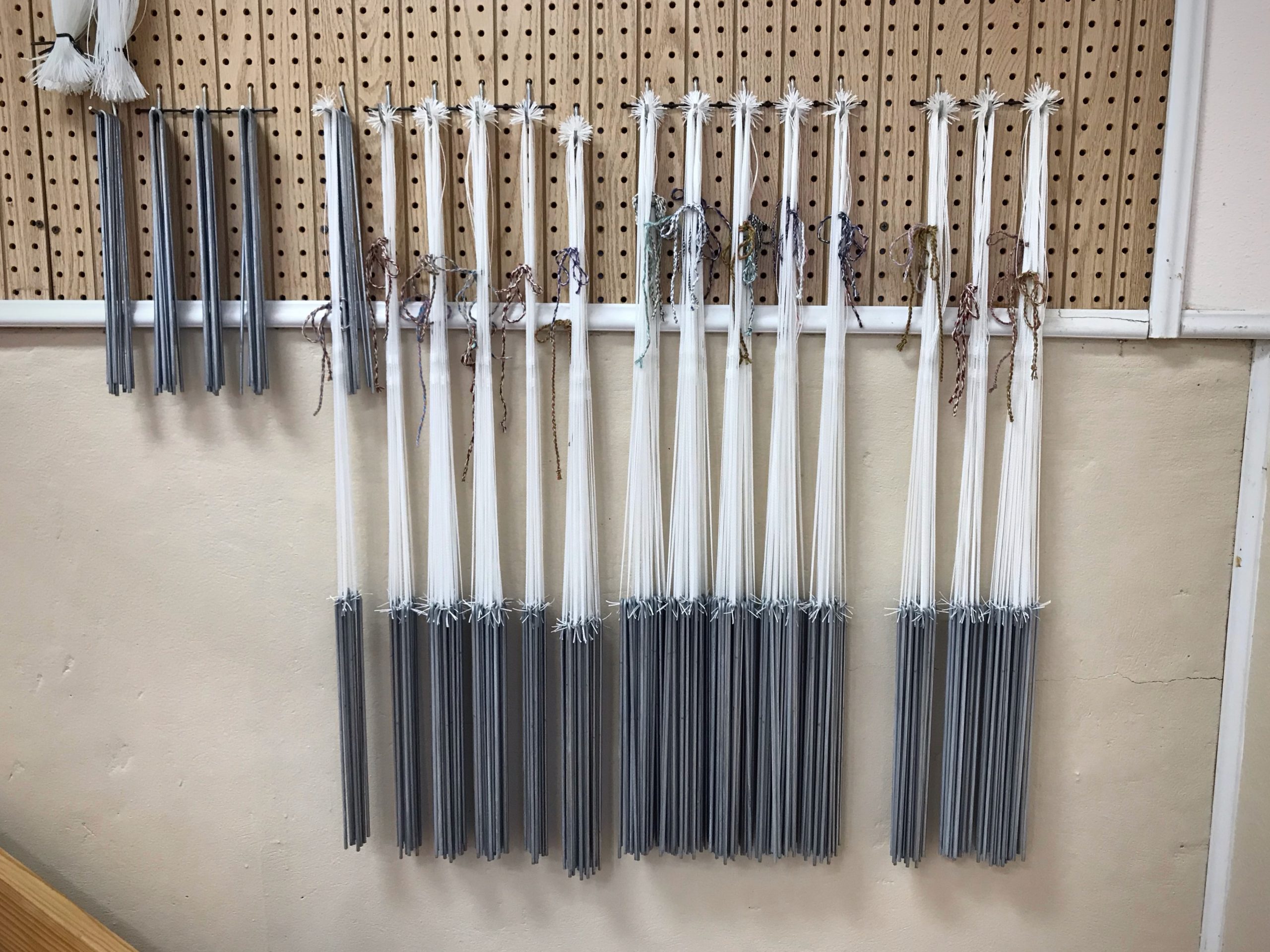
Before I start threading, I count out all the lingos (weights) I need for the pattern heddles. Then, I hang a lingo on each unit of pattern heddles. In this case, there are 148 units, and six heddles in each unit. I move all those prepared units (heddles with lingos) to the back of the loom, get comfortable on my loom bench, and start threading. After a few sessions, I am finished threading the pattern heddles.
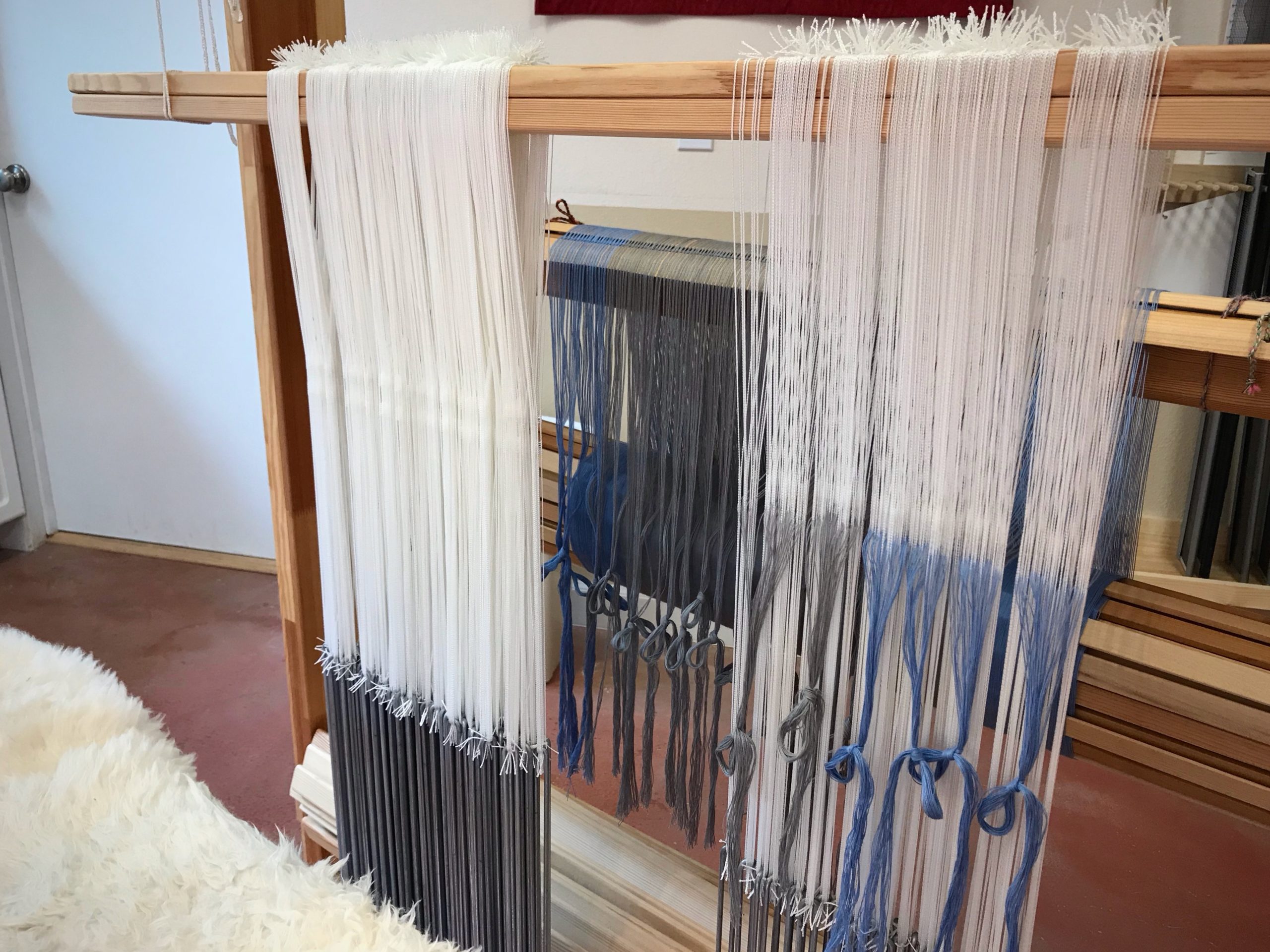
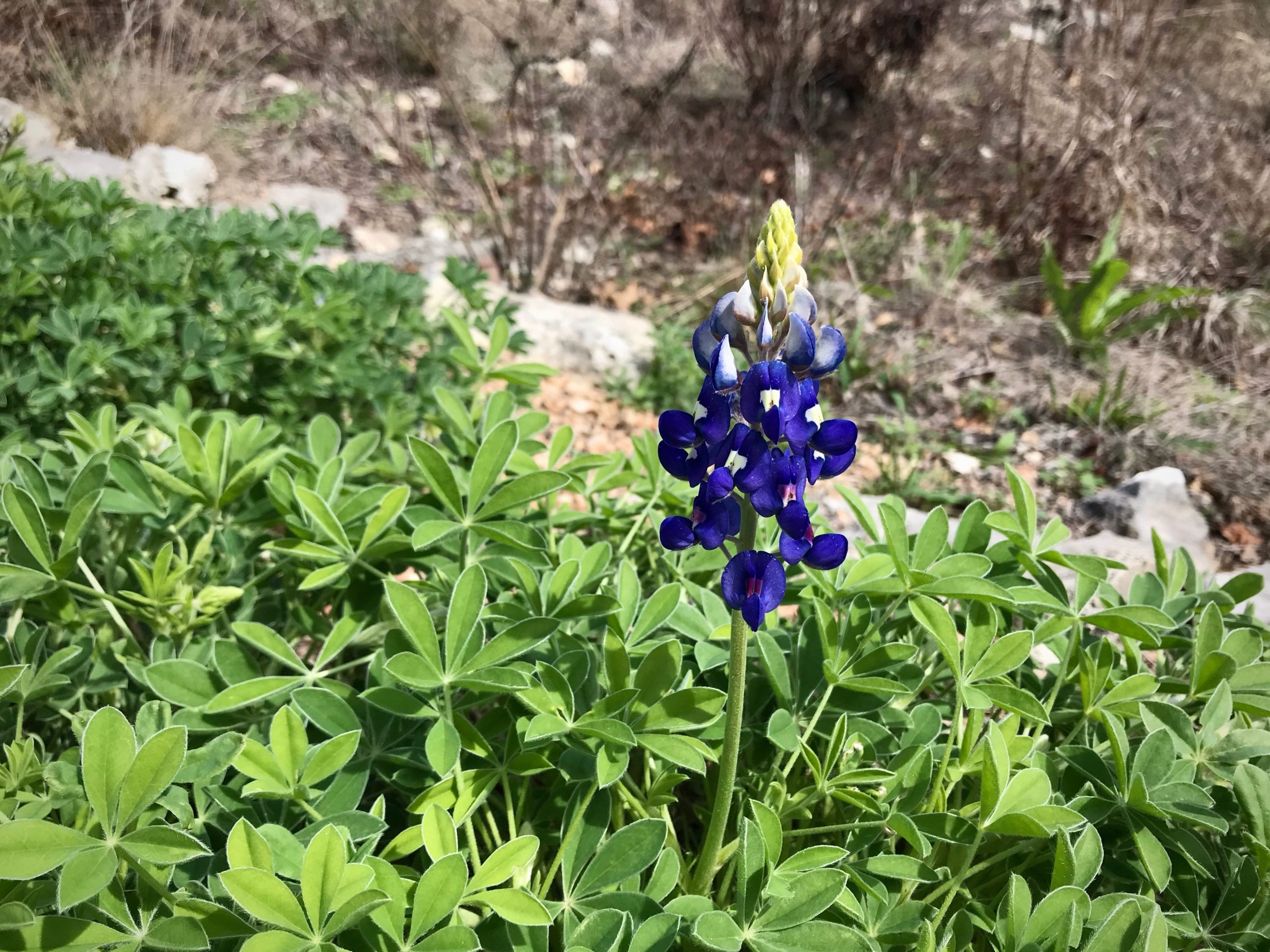
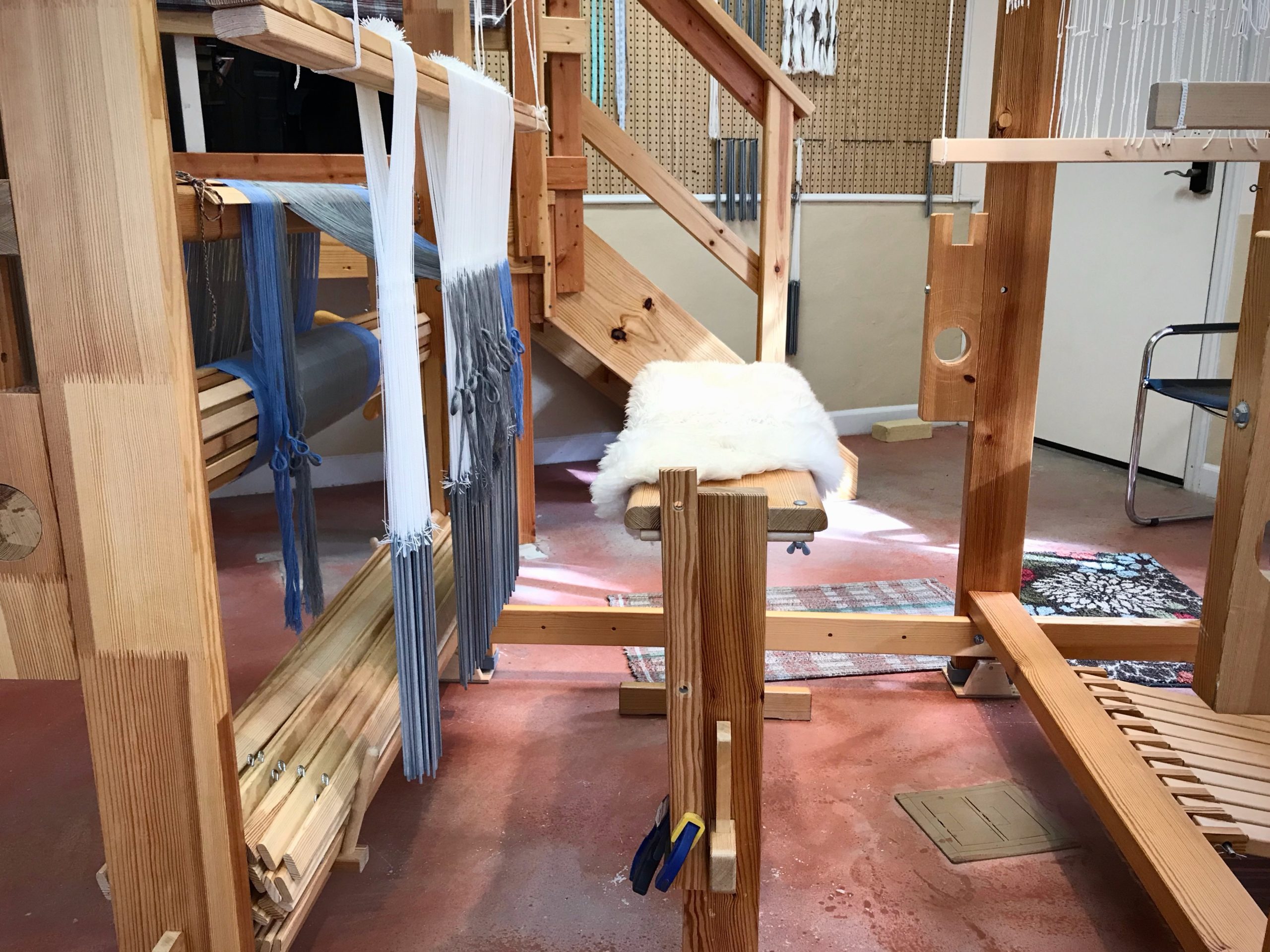
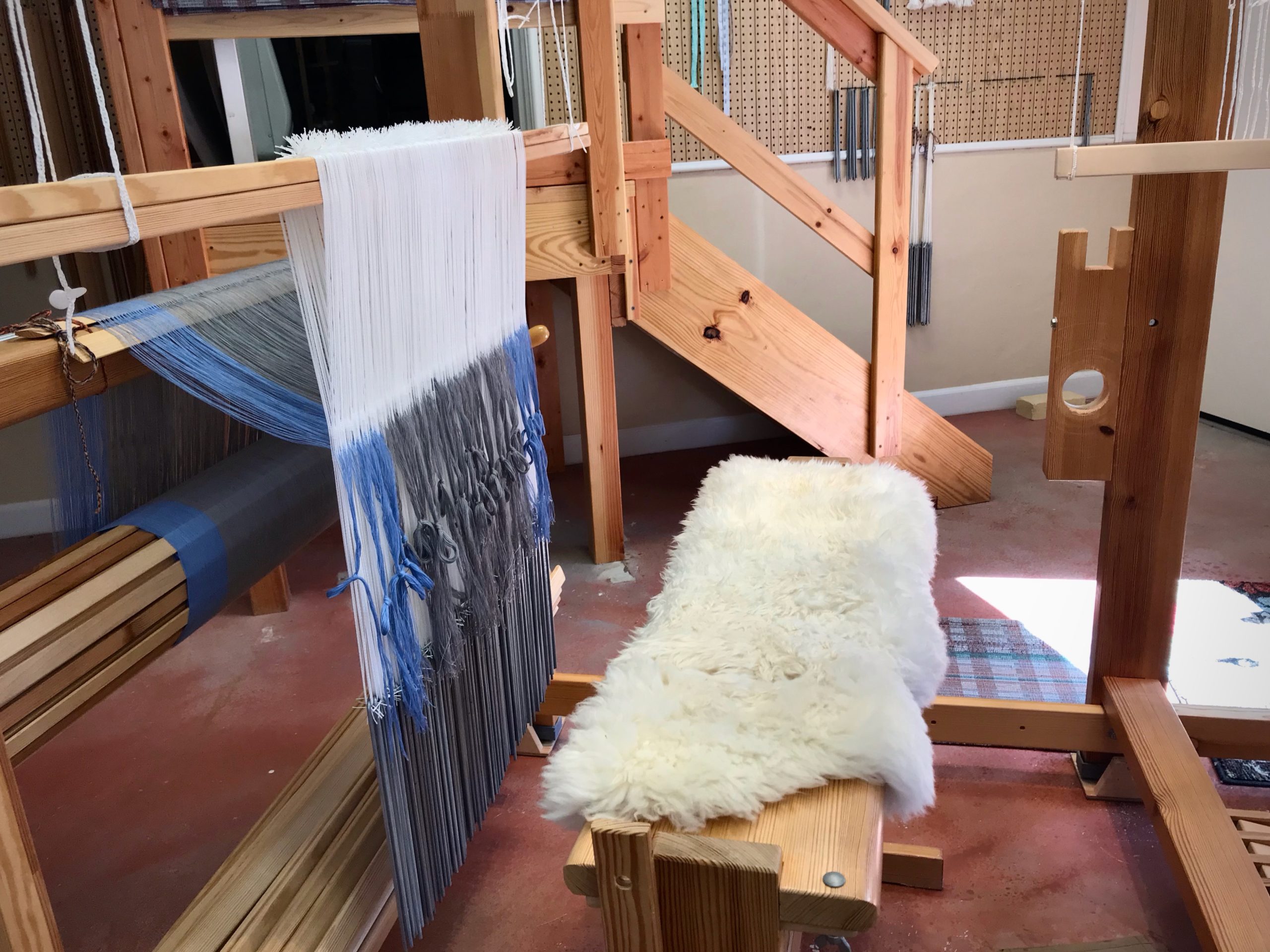
Next up, I will thread long-eye heddles on six ground shafts. A few more start-up operations after that, and then we will see this big ol’ boat raise its sails and leave the shore for another exhilarating adventure in weaving!
May you enjoy the preliminaries for every new start.
Happy weaving,
Karen

Karen,
I love seeing the details of your prep work! Thanks for sharing this with us. I can’t wait to see what magic is in store for this warp!
Hi Kevin, I’m glad you enjoy seeing the prep work. Every step in this process is interesting and builds the anticipation of seeing the magic!
All the best,
Karen
Hi Karen,
Not sure what I am more impressed with. The blue bonnet or the lingons lined up like sailors for inspection.
Eye candy all.
Nannette
Hi Nannette, The bluebonnets are just the touch of spring we need!
Thanks,
Karen
Wow! That is a lot of work but I bet it will be worth it. I am from Ontario, Canada. What you call Bluebonnets are called Lupines here. Nice to see flowers, our snow is just melting. Have fun with the warp.
Hi Wendy, At least it is “fun” work. 🙂 The Texas Bluebonnet or Texas lupine is a species of lupine found specifically in Texas. The bluebonnet is the Texas state flower.
Thanks!
Karen
My gosh, drawloom weaving seems so complicated! I am really excited to to see your interpretation of blue bonnets, Karen.
Hi Annie, Drawloom weaving involves more steps in setting up the loom that other floor loom weaving, but each step is not difficult. One step at a time…
Thanks,
Karen
Your Texas bluebonnets look something like the California lupines. Do you know if they are related? Are they a lupine?
BTW-I love to read about your prep work. I hardly weave any more due to back issues and content to learn braiding and kumihimo.
Hi Tobie, Texas bluebonnets are a variety of lupines (see my reply to Wendy Wood). The Texas bluebonnets are really pretty right now!
Thank you so much for letting me know you enjoy seeing the behind the scenes work here. There is a lot to learn with braiding and kumihimo. I’m sure you are enjoying that, too!
All the best,
Karen
Hi Karen,
Do you, or will you in the (hopefully) near future allow visitors? I came across your site while cataloging Joanne Hall’s Mexican Tapestry Weaving book and live near(ish) the Hill Country in New Braunfels. I’m not a weaver. I just enjoy any and all new adventures!! If you can see my email address, feel free to respond directly.
Thank you and hope to hear from you soon!
Amanda
p.s. need to make a trip out to Fredericksburg country roads to get my Texas Wildflower fix!!
Hi Amanda, I enjoy having visitors! I will send you an email.
All the best,
Karen